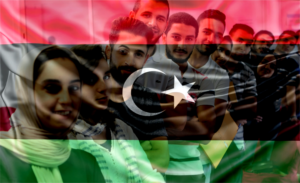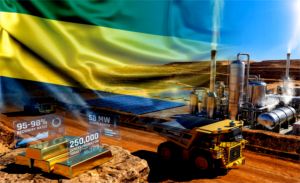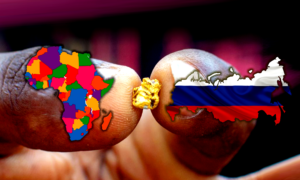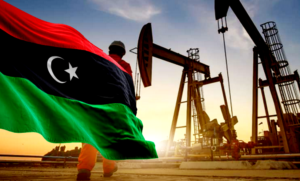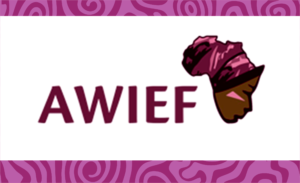Africa and the ChatGPT Dilemma: Bans, Restrictions, and the Future of AI on the Continent

ChatGPT, the AI chatbot developed by OpenAI, has become a global sensation that is reshaping industries, education and everyday communication. Yet, its expansion is uneven. While much of the world experiments with advanced AI tools, several African countries face restricted or blocked access, raising important questions about infrastructure, governance, and the continent’s readiness for the AI era.

Nine African Countries Restricting ChatGPT
A July 2025 report by Cybernews, based on OpenAI’s service data, revealed that more than 20 countries worldwide have restricted ChatGPT, with nine of them in Africa. Unlike global powers such as China, Russia and Iran, where bans are driven largely by political motives and a push for domestic AI alternatives, African nations contend with a more socioeconomic and sociopolitical mix of challenges: limited internet penetration, sanctions, political instability and regulatory uncertainty.
Where ChatGPT Is Restricted in Africa
| No. | Country | Status | Reason for Restrictions |
| 1 | Eritrea | Blocked by Government | Limited internet infrastructure; state-controlled information environment |
| 2 | Libya | Blocked by Government | Political instability; absence of regulatory framework |
| 3 | Eswatini | Blocked by Government | Small market size; regulatory uncertainty; limited OpenAI presence |
| 4 | Burundi | Blocked by Government | Underdeveloped infrastructure; weak digital policy |
| 5 | South Sudan | Blocked by Government | Fragile infrastructure; ongoing conflict |
| 6 | Sudan | Blocked by Government | Authoritarian restrictions; conflict-related disruptions |
| 7 | Central African Republic | Blocked by Government | Limited technological capacity; fragile governance |
| 8 | Chad | Blocked by Government | Restricted internet access; political interference |
| 9 | Democratic Republic of Congo | Blocked by Government | Sanctions; weak infrastructure; lack of regulation |
These restrictions overwhelmingly affect nations struggling with governance crises or authoritarian rule. By contrast, countries such as Nigeria, Kenya, South Africa, and Ghana enjoy full access and are actively exploring AI regulation and innovation, creating a sharp divide in Africa’s digital trajectory.

In July 2024, the African Union (AU) formally endorsed a continent-wide AI strategy. The framework emphasizes an “Africa-owned, people-centered, development-oriented, and inclusive approach” to building AI capacity. Its goals are twofold:
- Accelerate Africa’s AI capabilities in education, healthcare, logistics, and business.
- Safeguard societies from risks like misinformation, bias, and overdependence on foreign technologies.
This policy reflects growing awareness that Africa must avoid being just a consumer of imported AI systems. Instead, the AU envisions homegrown innovation, regulation, and adaptation to local contexts.
The contrast is stark. In countries with relative stability and robust institutions, AI is already powering startups, professional services, and digital education. In restricted states, however, citizens risk being cut off from a global AI economy expected to generate trillions of dollars in value by 2030.
Experts warn that hesitation or exclusion could widen the continent’s digital divide. As Rwandan President Paul Kagame argued at the Global AI Summit in Kigali:
“Africa can’t afford to be left behind, once again playing catch-up. We have to adopt, cooperate, and compete because it is in our best interest to do so.”
The urgency is amplified by the rise of alternative AI systems. Tech giants are racing ahead with platforms such as Anthropic’s Claude, Google’s Gemini, Elon Musk’s Grok, and Meta’s AI assistants. Without its own innovation ecosystem, Africa risks being a passive consumer in a rapidly shifting technological order.
Meanwhile, global debates about AI’s dangers continue. Geoffrey Hinton, dubbed the “godfather of AI,” has warned of a 10 – 20% chance that AI could one day pose an existential threat to humanity. By contrast, Fei-Fei Li, often called the “godmother of AI,” emphasizes the need for a human-centered approach that upholds dignity and agency. These divergent perspectives highlight why regulation and local capacity-building are essential.
Africa stands at a critical crossroads. Restrictive policies and fragile infrastructures could leave millions locked out of the AI revolution, while forward-looking strategies and investment could transform the continent into a hub of innovation.
The choice is clear: restrict and risk exclusion, or embrace, regulate, and build. With the right policies and investments, Africa has the opportunity not just to participate in the AI revolution, but to shape it.


